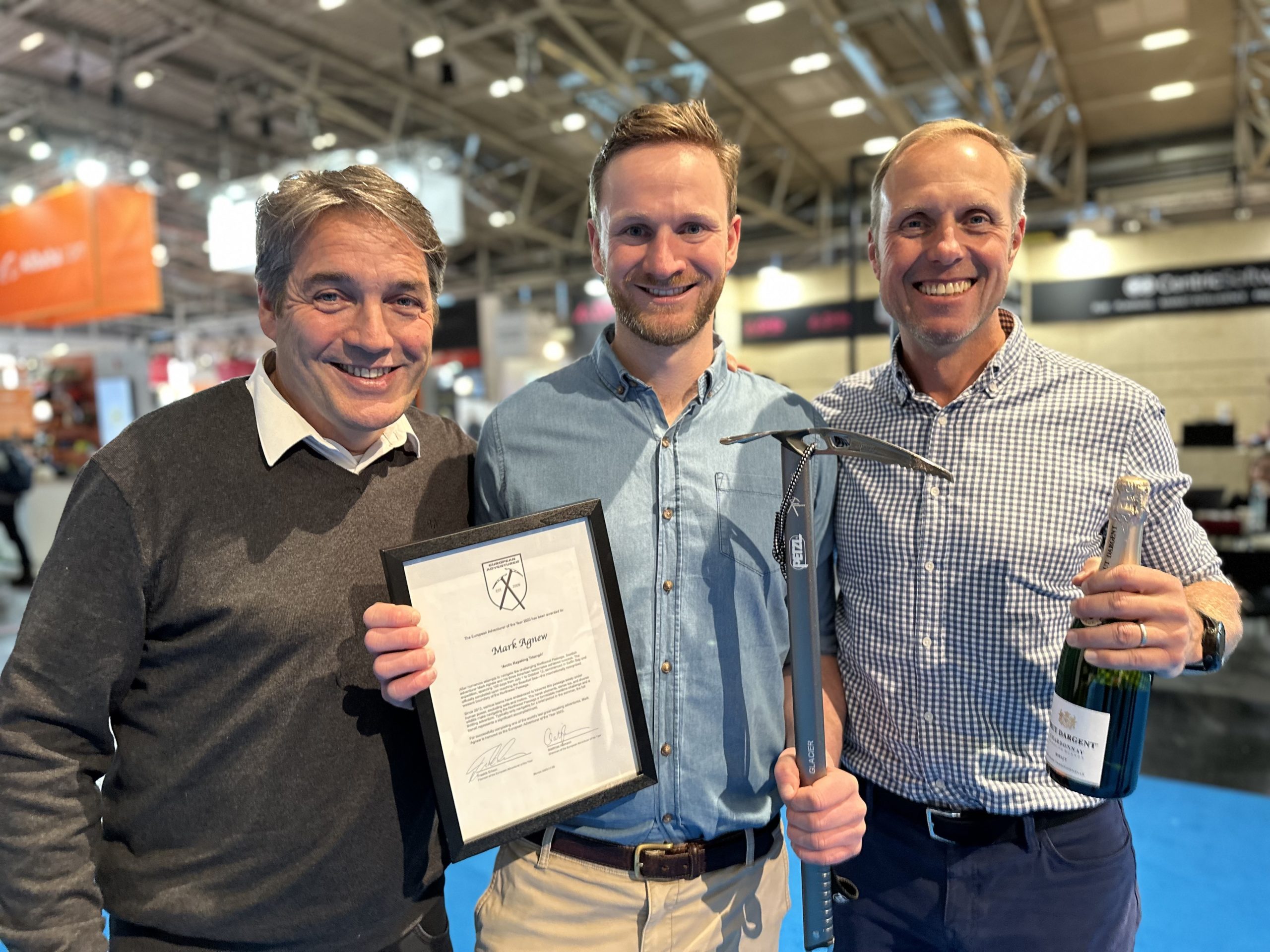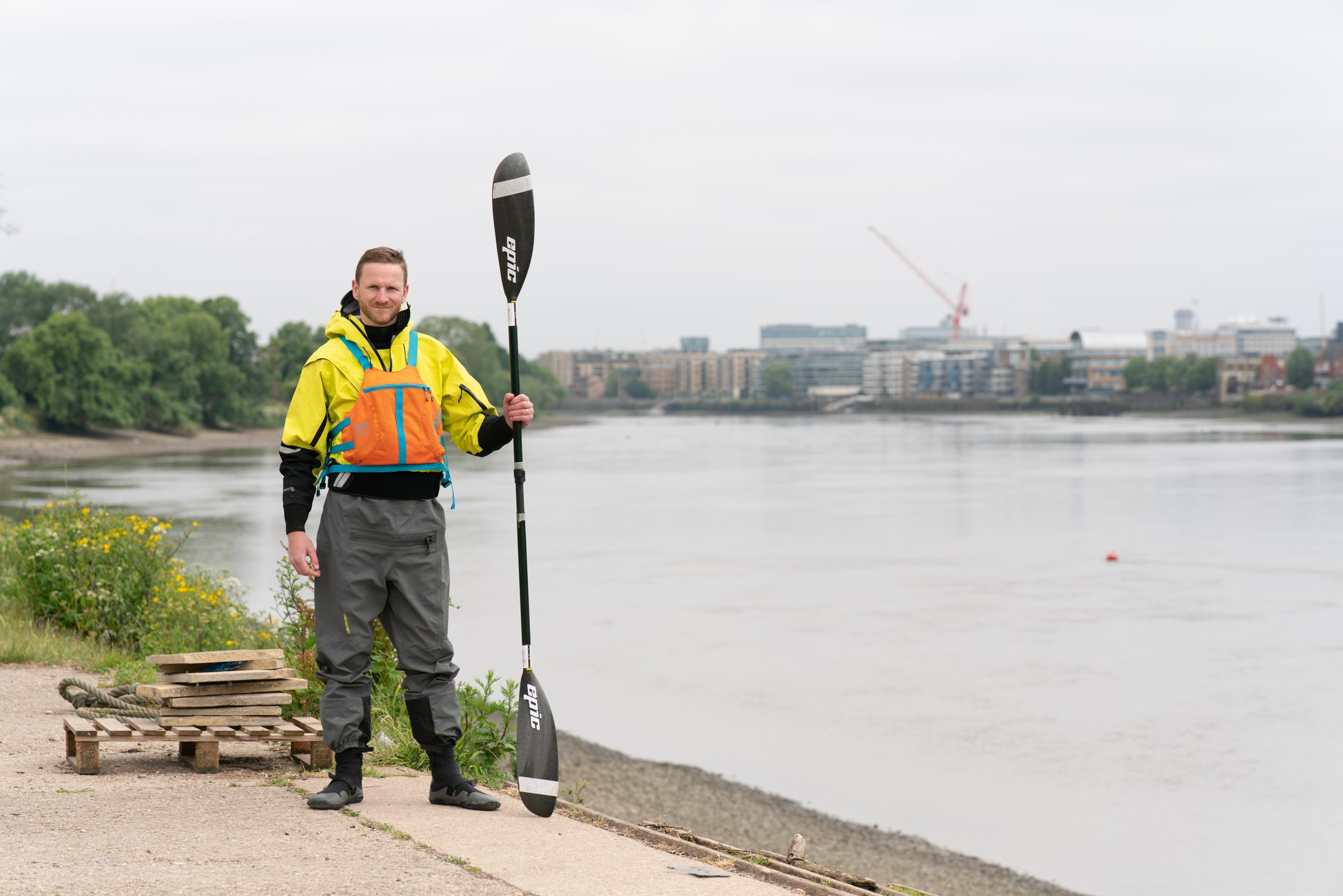For the first time a Scot has been awarded the prestigious European Adventurer of the Year for a record breaking expedition through the Arctic’s Northwest Passage.
Mark Agnew, from Edinburgh, set two world records earlier this year when he and his team kayaked the entire Northwest Passage.
Mark became the first people to Kayak the Northwest Passage, and the first people to complete it in a single season by human power, without the help of motors or sails.
He joins a prestigious list of previous winners including Austrian Felix Baumgartner, for jumping out of space, and Spaniard Kilian Jornet, a world famous mountaineer.
‘I’m over the moon,’ said Mark. ‘This is such an incredible honour.
‘Adventurers have been trying to complete the Northwest Passage by human power for years, so to actually do it feels epic.
‘To have that recognised by the European Adventurer of the Year jury is amazing. I’m so proud.
‘To be on the same list as the likes of Felix Baumgartner is humbling. I remember being glued to the TV as he jumped from space.
‘I couldn’t have done it without my teammates. The experience was made so much better because I shared it with them.’

Mark Agnew (centre) with Fredrik Erixon, Founder & Partner Adventurer of the Year (right) and Matthias Aßmann, Partner Adventurer of the Year (left)
The Northwest Passage is the Arctic route that links the Atlantic and the Pacific. It starts in Baffin Bay, Canada, and ends in the Beaufort Sea, Canada.
The route is best known for the ill fated expedition of John Franklin.
He searched for the Northwest Passage in the 1840s in the HMS Terror and the HMS Erebus, but both his ships were encased in ice.
The crew engaged in cannibalism in a bid to survive, but ultimately all 129 of them died.
Mark and his team travelled almost 2,000 miles including the journey to the start of the passage and back to civilization after completing the journey in 103 days.
‘We saw so many polar bears,’ said Mark. ‘A few came into our camp and we had to shout and chase them off.
‘One woke us up by pressing itself against our tent. The encounters were amazing. But this one was too close for comfort.
‘At the start of the expedition, the water was still full of sea ice.
‘It was amazing and terrifying. It was so dynamic.

Credit: Matt Jones
‘On our first night paddling, the ice shifted so it was between us and land. We had no way to get back to shore and no idea how long we would be stuck floating.
‘We paddled for hours and hours with no end in sight. Finally, we found more permanent stable ice.
‘So, we pulled our kayaks up onto the ice and dragged them back to land.
‘While we dragged, I stood on some thin ice. It broke under my weight and I plunged into the Arctic ocean. I didn’t panic. I told the others to stay back.
‘Then, they pushed the nose of the kayak towards me, I held onto it and they pulled me out.
‘After hours of paddling and dragging, we made it back to land. We were back where we started. We waited for two weeks for the ice to move so we could start the journey again.
‘To think that is how we started, it is amazing we finished and a testament to how hard we worked.’
Mark tried and failed to row the Atlantic twice – once in 2016 and once in 2018. Following the second failure, his mental health spiralled.
He raised over £10,000 for Wilderness Foundation UK, a charity that helps people with their mental health by connecting them with nature.
Read more on Scottish Field’s Outdoor pages.
Plus, don’t miss the December issue of Scottish Field magazine.
TAGS

